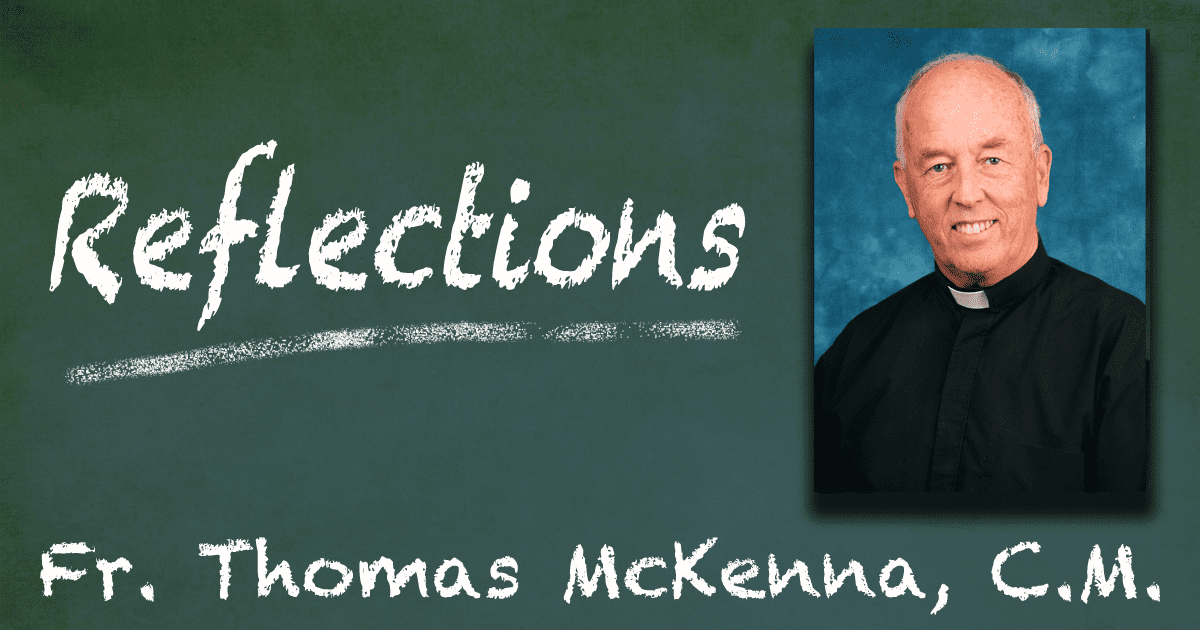A question often on the lips of a believer: where and how is God present in my life? I believe that God, in Jesus, is here in the sacraments, especially the Eucharist. But what about in the rest of life, other things and situations that carry God’s presence? Put it another way, besides the seven we know, what else could we consider as sacramental? The word itself has two parts, “sacra” meaning sacred or God-like, and the ending conveying some type of presence. A sacrament is “the Holy at hand,” God’s nearness in the here and now. Where else besides the traditional seven might we expect to find this sacred closeness?
One might be in the everyday act of listening and speaking, hearing and then reacting to what is being said. For instance, God tells the prophet Ezekiel, “When you hear me say anything, you shall warn them for me.” (Ez. 33:7). The prophet’s words here are sacramental, bringing God’s presence into a definite time and place. In Matthew’s gospel, Jesus increases the number of people involved as he sets out a process for community reconciliation.
One person has offended, and a delegate is sent to confront him that he admit his fault and show repentance. If that interchange is fruitless, two other people are brought in for more talk and listening. That failing, the whole group (the Church) intervenes, hoping the culprit will come around. But Jesus does not regard these conversations as simple attempts to patch up a hurt. He goes on to say that in all this speaking and hearing, he will be right there “in their midst.” He promises to be present in the back-and-forth involved in the challenge of bringing harmony back into a divided congregation.
Thus, that wider notion of sacrament: The Holy making itself present. All that speaking and listening in the process of resolving a hurt is accomplishing just that. As Jesus explains, “When you gather to speak and listen and argue in my name, there am I right in the middle of it all.” (Mt 18:20)
Can we see any of our own attempts to listen, understand and speak our own truth as actions which carry Christ’s presence? Can we look upon any conversations such as these to bring about reconciliation as bringing The Lord Jesus into our midst?
I once attended a funeral of a man who had two sisters who had not spoken to each other for years. When time came for the exchange of peace, an in-law in the pew turned to the two feuding women and gestured for them to greet one another. Standing there next to the coffin of their deceased brother, both broke down and reached out to hug the other. That man’s intervention opened onto a kind of sacrament, a letting-in of The Lord’s presence “right there in their midst” as each spoke and listened to the other.
One of St. Louise’s letters echoes a similar interaction. “If you place yourself in the presence of God, His goodness will not fail to advise you on all that He asks of you, whether it be the mortification of your senses and passions or the practice of the virtues which He desires so that you may be pleasing to Him.”
Where is God present in our lives? Where are there happenings that are sacramental in this wider sense? Any interaction for the good done in Jesus’ name is one of those places. He tells us emphatically that when we gather in his name and listen to each other in love, then “There am I,” living as the energy of that healing connection.






0 Comments